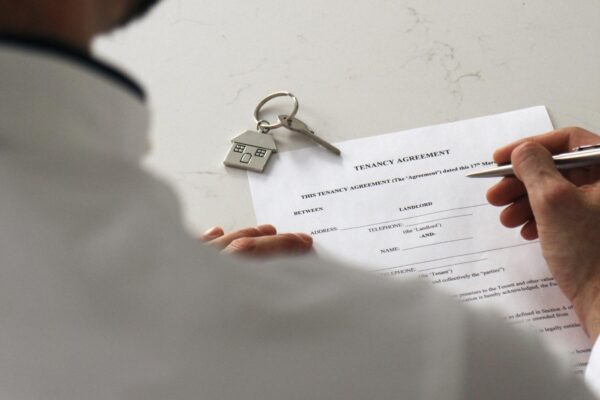Most of the time, being a good landlord just requires common sense. You don’t need to pay a letting agent £1,000s to ‘manage’ your property or fill in reams of paperwork.
But there are a few common pitfalls that landlords can fall into when letting their first property. While they could land you in very hot water, once you know what they are, they are easy to avoid.
OpenRent has let over 500,000 properties since its founding in 2012, so we have plenty of experience when it comes to creating a happy tenancy. Here are the top seven mistakes that new landlords make — and how you can avoid them.
1. Beginning the Tenancy without an Inventory
An inventory is a schedule of the condition of your property and its furnishings. It may feel like a document with this level of detail is unnecessary and needlessly time-consuming. But the inventory is a document you may have to rely on later — and if you are without one, there is really no replacement.
Having an inventory that has been dated and signed by you and the tenant means that you will be able to demonstrate that any damage to the property or furnishings, or any missing items you provided, has been caused by the tenants. If you can demonstrate this, then you will be able to make deductions from the tenant’s deposit in order to repair the damage or replace the items.
The inventory can be as simple as a word document that goes through each room of the property, noting any existing wear and tear, and the furniture in each room. At the more professional end of the spectrum, you can hire an inventory clerk to inspect the property and produce an independent report.
Although it may take a day to perform the inventory, write it up and get it signed by the tenant, this will give you peace of mind, a stable basis for making any needed deposit deductions, and will last as long as the tenancy does. For all landlords, an inventory is essential.
Get a professional inventory with OpenRent.
Order inventory2. Not Registering the Tenancy Deposit
If you haven’t let a property before, you may not realise that any tenancy deposit (also called a security deposit) you take must be registered with an official deposit protection scheme. Each of the UK’s nations has several schemes to choose from. You can either deposit the money with the scheme for free, or keep the money yourself, but pay a small insurance charge.
Failing to register your deposit can result in a large fine. It can also worry the tenant, who will assume you don’t know your landlord responsibilities. Even if you intend to treat the deposit fairly and have the best intentions, landlords must always register the tenancy deposit with a protection scheme.
From the day the tenant pays you the deposit, you have 30 days to register the money and then serve (i.e. give) the tenant the ‘prescribed information’. This is a bundle of information that informs the tenant of their rights within the scheme and how they can claim their money back at the end of the tenancy. It is written by the scheme; you just have to pass it on to the tenant. Serving this information is key to getting the tenancy off on the right foot.
Sound like a faff? When you use OpenRent to set up your rental, we collect and register the deposit on your behalf, and serve the information to the tenant automatically, so you can be sure you have done things properly.
Let OpenRent handle your deposit.
Set up with tenancy OpenRent3. Failing to Include Section 8 Grounds in the Contract
Although the end of the tenancy may be far from your mind as you are in the midst of setting it up, it is important to give yourself as many options as possible.
If you are letting a property that you or your family have lived in as your primary residence, then you have the right to use a ‘Section 8’ eviction notice to end the tenancy so that you can move back into the property. But you can only use this right if you make it clear in the tenancy agreement that you may do so at some point in the future.
If you have not included this information in the contract, then you will not be able to use Section 8 to evict the tenant in order to move back into the property, even if you need to use it for your own home. Make sure you include a term in the tenancy agreement along these lines if you have lived in the property in the past.
4. Getting Locked into Rip-off Letting Agent Fees
Letting agents like to tell you that they will manage the property on your behalf, offering convenience and peace of mind. In reality, they usually charge an up front fee for finding tenants, then continue to charge a percentage of your rent every month that the tenants live there.
In other words, an agent could have found you tenants in 2005, and you would still be paying their 7% tenant-find fee in 2020, despite them having done nothing for you in years. Make sure you fully understand the terms of your contract with a letting agent if you feel like you have to use one.
In general, it is better to use online agents to find your tenants, since then you will only pay a one-off fee. It could save you thousands of pounds in the long-run.
5. Forgetting to Serve the ‘How to Rent’ Booklet to Your Tenant
Like the deposit scheme information, at the start of your tenancy you need to serve you tenants a government information booklet called ‘How to Rent’. The booklet has information on the tenant’s rights and the most up to date version can always be found here on the gov.uk site.
You do not need to serve the new version whenever the booklet is updated, but you will need to serve the latest version if you renew the tenancy. If you forgot to do this at the beginning of your tenancy, then it will make it much harder to evict the tenant, as it could stop you from serving a valid eviction notice.
If you use OpenRent to set up your tenancy, we will serve this information for you automatically, so you don’t have to worry about it.
OpenRent does all of this for you automatically, so you can relax. Read more about how OpenRent makes life easier for landlords.
Read more6. Not Vetting Tenants Before Viewings
Conducting viewings is a great chance to meet your tenants. But they do require some effort to arrange and perform. It’s best, therefore, to limit the number of tenants you give viewings to, so that you only show around the tenants most likely to actually rent your property.
You can cut out time wasters or non-starters by sending all prospective tenants a list of vetting questions to answer when they initially enquire about your property. This can be as simple as getting them to confirm the details in your advert. There’s no point booking a day off work to give a viewing to someone just to find out that they never could have moved in because they didn’t read your advert properly.
If you’re not sure what to ask, read our tenant vetting questions guide.
7. Leaving it too Late to Perform the Safety Checks
There are several safety checks you’ll need to perform before letting your property. It can be tempting to try and find tenants as quickly as possible and then to get the checks done in between agreeing the tenancy and the move-in day.
But work can sometimes be slow to arrange due to high demand from landlords and limited number of tradespeople. It is much easier to perform work while the tenant is not in the property, as you do not have to arrange convenient days for access. Make sure you give yourself enough time to complete all safety work on your property before the tenants move in. That includes:
- Gas safety check
- Electrical installation condition report
- Energy performance certificate
- Smoke and carbon monoxide alarms
Failing to perform legally required checks will mean your tenants are at risk of harm and you are at risk of large fines and, depending on the severity of the situation, criminal prosecution.




Sam
from point 3 what should the contract say to include the section 8 Grounds as I do not see it in the normal openrent contract?